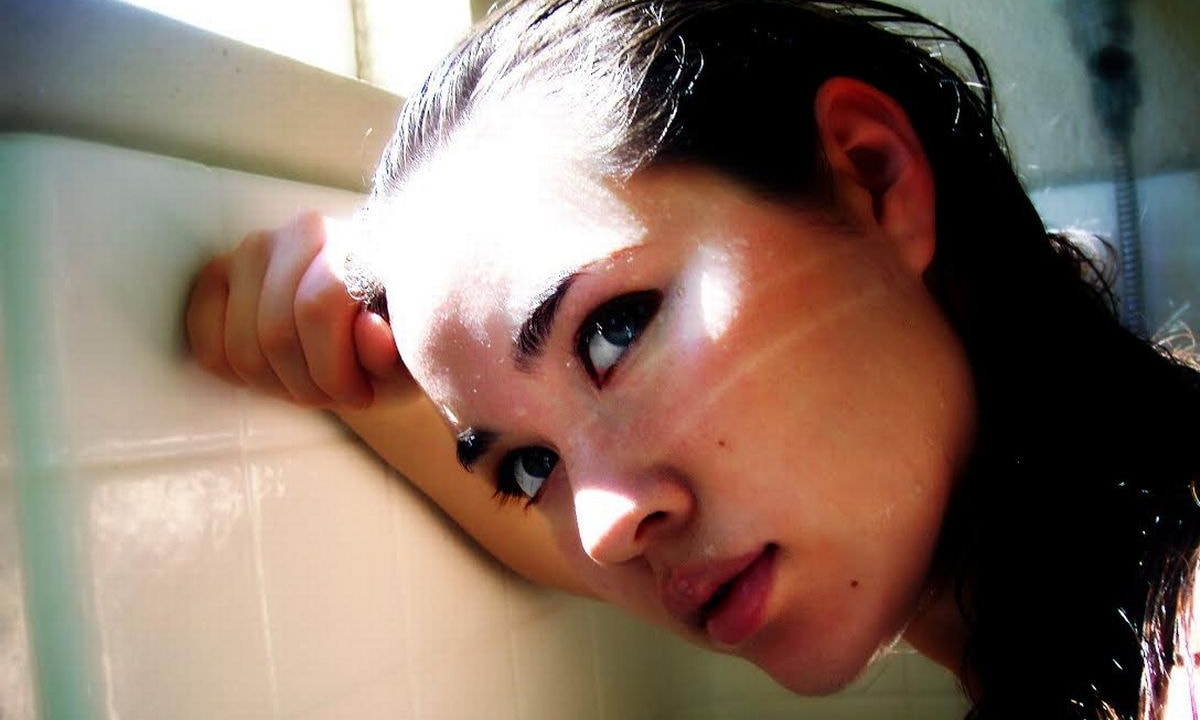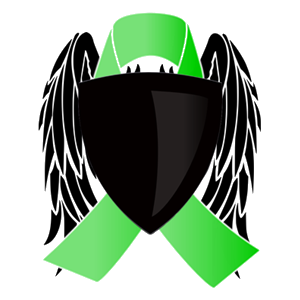Feeling Worse After a Shower or Bath with Lyme disease
An Unearthly Feeling Indicating Possible Toxin Overload
Some people with chronic Lyme Disease have a tendency to feel incredibly horrible for days after taking a simple shower or bath. It sounds strange to those who don't experience the unusual effects from what would appear to be a harmless hygienic activity, but to those who are unfortunate enough, extremely debilitating physical and mental symptoms manifest.
The effects can be so intense that a person will even refrain from showering or bathing for days, or even weeks, simply to avoid the horrible state that becomes from showering or bathing.
Symptoms Experienced After a Shower or Bath
It's hard to be specific with the symptoms, but in a nutshell, the feeling a person receives after showering or bathing is one of disgust or the need to get out of the skin. This is actually a symptom in itself that can only be understood through experience. In the beginning of treatment, a person could shower or bathe without the worry of this feeling of disgust appearing, but as they progressed in their treatment, this debilitating experience arose.
|
Some of the more generally understood and common symptoms include becoming lightheaded, and an increase in brain fog or an inability to articulate critical thought. After taking a shower or bath, eyes can become glazed and puffy, and the skin of the face can becomes very pale - a likely clear indication of the toxicity within. These symptoms will increase and become exponentially worse in the hours following the shower or bath, but will begin to subside within a day.
Not everyone will experience the same symptoms as each person's body possesses different types and loads of infections and toxin accumulation within.
|
|
Possible Causes
No information has officially been presented or come forth explaining why this feeling of disgust arises in certain people with chronic Lyme Disease after a shower or bath. There are however many plausible theories that have been tested, yielding a few reasonable causes. So what can actually happen in a shower or bath that can lead or give way to such a miserable and disgusting physical and mental state?
- Irritation of the Infections - When the body is exposed to a hot shower or bath for prolonged periods of time, the infection(s) within the body can become irritated and disturbed with flare ups potentially occurring soon afterwards. The longer a person spends in a hot shower or bath, the worse the flare up symptoms will be in the hours following it. Flare up symptoms are unique to the type of infection(s), location of the infection(s), and total load of the infection(s) a person may have.
- Herxing - Borrelia Burgdorferi, the bacteria responsible for chronic Lyme Disease, dies at 106° Fahrenheit (41° Celsius). Though a hot shower will likely never bring the temperature of the body near 106° F, the spirochetes will and do become agitated as the body's temperature approaches it. In an essence, by taking a hot shower or bath for an extended period of time, you're inevitably creating an artificial fever. Though killing the spirochetes and candida within without medicine is a great accomplishment, it leaves little control as to how much you actually kill off. As a result, in the following hours after your shower or bath, you could potentially experience mild to severe die off symptoms depending on the circumstances of the shower or bath you had.
- Toxin mobilization - By exposing the body to a hot shower or bath, toxins currently stored in the body that were produced during the duration of treatment for Lyme, and toxins the body has accumulated just by existing, can re-enter the bloodstream under the ideal circumstances. A person doesn't even need to be exposed to high temperature water to mobilize toxins as the pressure from the shower nozzle is enough to do it; heat can makes it worse by relaxing muscles and tissue. On top of toxin mobilization, the risk of generating a die off from either Lyme or Candida can occur depending on how hot the water is, and how long you're exposed to it.
|
|
Toxin mobilization could also explain why those with chronic Lyme could shower or bath in the beginning of treatment without the worry of feeling horrible afterwards. The amount of toxins within the body in the beginning of treatment was almost nonexistent compared to the amount of toxins residing in the body after being on treatment for a year or more.
Even if a person is detoxing well, not all of the toxins will be removed or expelled from the body. Many of them will be stored within fat cells and the tissue of the body because they have become too much for the body to handle or process at one period of time during the course of treatment.
|
Recovery Protocol
While the exact cause of the physical and mental debilitation induced by a shower is currently unknown, a potential remedy has been found. Once the feeling of debilitation begins after taking a shower, put the juice of 1 lemon or lime and 2 Alka-Seltzer Gold tablets into 8 ounces of water. Immediately after downing this elixir, take 1500-2000mg of liposomal glutathione. You should begin to feel relatively better within 2-3 hours, and continue to improve exponentially as the hours pass. This recipe is recommended directly from ILADS and Dr. Richard Horowitz, M.D. for acute herxheimer reactions.
Recover Remedy Ingredients
- 2 Alka-Seltzer Gold tablets
- 1 lemon
- 1500-2000mg of Liposomal Glutathione
The Alka-Seltzer Gold helps to alkalize the body, the lemon and/or lime add vitamin c, and the liposomal glutathione provides the extra detoxification agent the liver needs to process the toxins. This recovery protocol is designed specifically for the debilitating reaction that this article attempts to best describe. If this recovery protocol makes you feel better, it's safe to assume that what was experienced was an acute herxheimer reaction induced by a shower or bath.
Many people with chronic Lyme Disease feel light headed, dizzy, and/or weak after taking a shower or bath, but this may ultimately be more related to and caused by POTS rather than an acute herxheimer reaction. However, a person may still experience both at the same time.
People with a CBS gene mutation, and/or an inability to tolerate sulfur should be wary of consuming liposomal glutathione. Check with your treating physician to see if your sulfur levels are normal enough to allow the consumption of liposomal glutathione. Information for addressing high sulfur levels in the body from a CBS gene mutation can be found in Dr. Amy Yasko's book Autism: Pathways to Recovery.
|
People who feel worse after taking an epsom salt bath may also be sulfur sensitive. Epsom salt is magnesium sulfate. It is possible that a person may have been able to tolerate an epsom salt bath in the beginning, and it may have made them feel better, but as treatment progressed, the CBS gene mutation may be called upon to work harder and a latent sulfur sensitivity may develop. If the above protocol makes you feel better after taking a shower or bath, you likely had an acute herxheimer reaction. However, if it does not, you may also be dealing with POTS and/or a sulfur sensitivity (i.e., epsom salt bath).
|
|
Don't intend to increase the dosage of your treatment protocol during this time as it will only make you feel worse - if that can be imagined. In fact, if the feeling of disgust is so intense, consider backing off of your Lyme Disease treatment protocol for a minimum of 3 days (consult your doctor first) to give the body the resources and energy it needs to return itself to a relatively normal state.
Implement this protocol alongside a well established detoxification protocol. If you find that your symptoms are decreasing at a rate that is reasonably unacceptable, you might want to consider other possible reasons for the slow progress or delay in relief.
Tips for Prevention
Though the feeling of disgust experienced after a shower or bath can't be avoided entirely, there are tips and protocols you can implement to decrease its intensity.
- Lessen the pressure of the nozzle. A high pressured nozzle will basically massage the muscles and result in the re-entrance of toxins into the blood stream. This is also why a deep tissue massage is to be avoided while battling chronic Lyme Disease and coinfections.
- Lessen the temperature of the water. By keeping the water at a lukewarm to cool level, the overall temperature of the body won't rise as fast. By raising the temperature of the body, the risk of die off from Lyme or Candida becomes greater.
- Lessen the amount of time you spend in or under the water. The best advice here is to only allow the water to touch your skin when it's time to rinse. Avoid standing under the water in between rinsing, or even shut it off completely until it's time to rinse.
|
|
Radical InterventionAn infrared sauna is the only known detox method capable of decreasing the intensity of the feeling of the disgust that occurs after a shower or bath. The theory suggests that after using a sauna for a couple weeks, the total load of toxins that have accumulated in the body since the beginning of treatment will be reduced drastically. Blood is even restored to the face because circulation improves.
Though an infrared sauna is capable of removing toxins through sweat, it doesn't appear to reach the toxins buried deep within the muscles and tissue of the body. This could explain why this feeling of disgust, though drastically reduced in intensity, still occurs after taking a shower or bath
|
With the intention of taking a shower, use the infrared sauna first depending on your level of tolerance. Then immediately afterwards, take your shower while enacting the tips for prevention. You should notice that even after the first week of using an infrared sauna, the feeling of disgust that follows the shower will have been reduced in its intensity greatly.
Also on Tired of Lyme
Refresh
Refresh
Subscribe to Tired of lyme!
Subscribe to Tired of Lyme's mailing list and get notified of new articles!





Comments